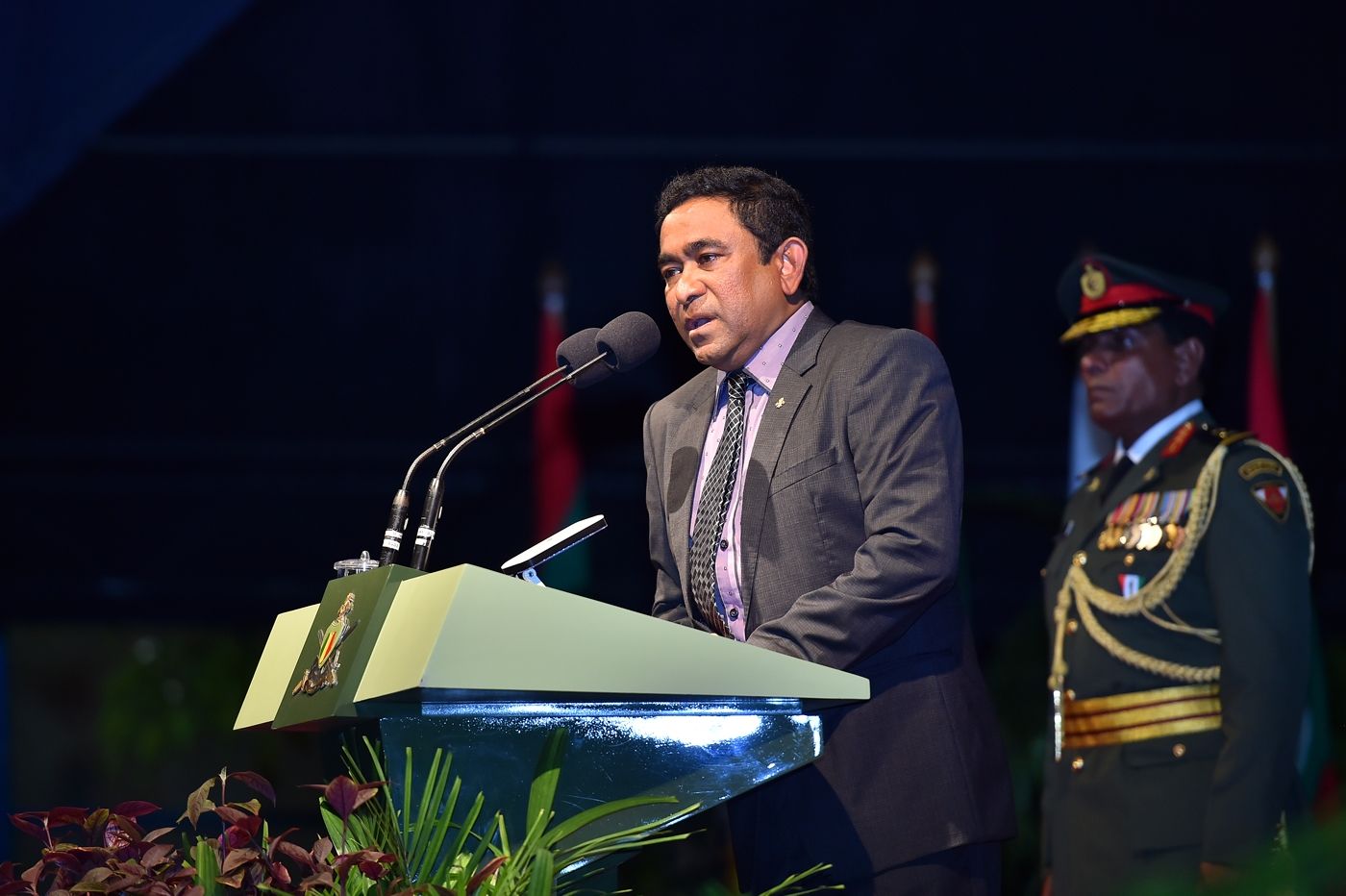Defiant Yameen lashes out as concerns persist over jailing of opponents
The Maldives’ embattled president, Abdulla Yameen, has lashed out at persisting international scrutiny over the jailing of his opponents, days after cabinet ministers promised to follow recommendations for reform by the Commonwealth.

25 Apr 2016, 09:00
The Maldives’ embattled president, Abdulla Yameen, has lashed out at persisting international scrutiny over the jailing of his opponents, days after cabinet ministers promised to follow recommendations for reform by the Commonwealth.
“There are traitors among us,” Yameen said at a ceremony to mark the Maldivian army’s 124th anniversary on Sunday. He urged soldiers to reflect on the jailing of former President Mohamed Nasheed and two former defence ministers, as well as the alleged role played by former and incumbent soldiers in the multiple crises that has besieged his administration.
Soldiers must stand ready for ideological attacks, too, he said, revealing plans to introduce military courts to try army officers for criminal offences.
Several top-ranking officers and Yameen’s former deputy are on trial over a blast on his speedboat last September.
Become a member
Get full access to our archive and personalise your experience.
Already a member?
Discussion
No comments yet. Be the first to share your thoughts!
No comments yet. Be the first to join the conversation!
Join the Conversation
Sign in to share your thoughts under an alias and take part in the discussion. Independent journalism thrives on open, respectful debate — your voice matters.




